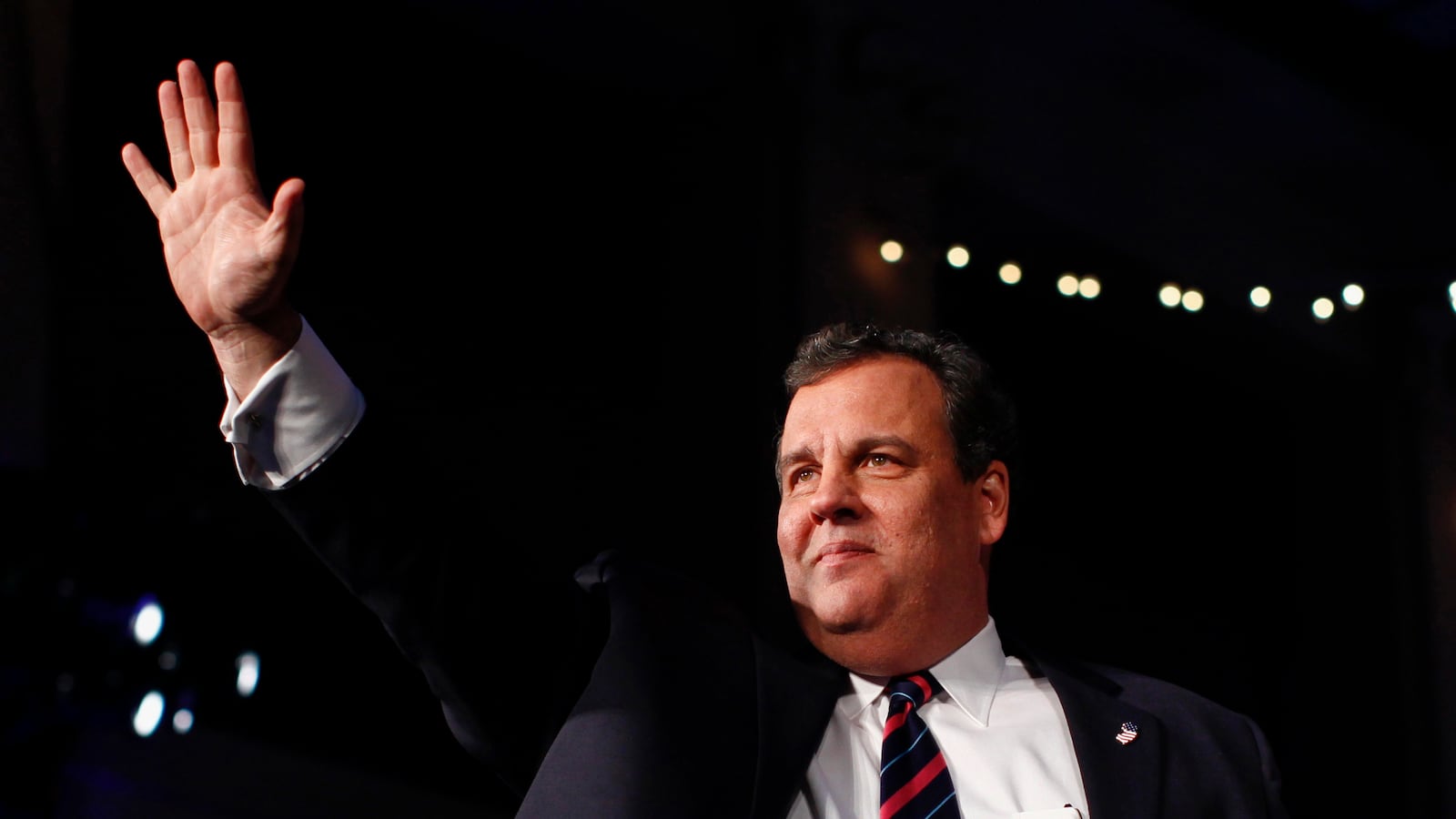Chris Christie’s greatest obstacle to becoming president of the United States is neither his weight nor his conservative credentials. It’s his crappy economic record as governor of New Jersey.

Yes, I know Christie just won an impressive reelection victory, securing 60 percent of the vote in a blue state that President Obama won by 17 percent in 2012. And for those who weren’t aware of how amazing that feat was, Christie was happy to explain it Sunday morning, taking a victory lap with appearances on NBC, CBS, CNN, and Fox News. The governor is starting to make Kim Kardashian look camera-shy.
But Christie won big for two reasons, neither of which is his record. First, as a proud New Jersey native, I can tell you Christie connects with New Jersey voters on a visceral level. At a time when politicians are typically ideologues or those who say whatever voters want to hear, the governor is a breath of fresh air. He isn’t afraid to speak bluntly, and he has worked with Democrats, as we famously saw after Hurricane Sandy, when he teamed up with Obama. (I even feel an affinity for Christie, though that is less because of politics and more because we both have Sicilian mothers, so I know the craziness he endured growing up.)
Second, Christie’s gubernatorial opponent was an unknown state senator, Barbara Buono, who raised less than a third of the campaign funds Christie raked in. So even though only 42 percent of New Jersey voters approve of Christie’s handling of the economy, Buono didn’t have the resources to make a compelling case that she could do better. To make matters worse for Buono and better for Christie, a number of Democratic elected officials and political bosses broke ranks and either publicly supported Christie or sat out the election.
But the 2016 race for president will not pit Christie against an unknown, underfunded candidate competing for votes among a small pool of voters who already feel a connection to him. Christie will be moving up from an intramural basketball game in New Jersey to the equivalent of the Harlem Globetrotters on the national Republican primary stage. (Except it will likely be an all-white version of the Globetrotters.)
When governors run for president, their record is their résumé. They generally tout their successes and promise voters they can replicate those accomplishments on a national level.
Their political opponents, meanwhile, will sift through their record like a CSI lab technician, looking for any hint of failure. Indeed, they will often take the governor’s greatest accomplishment and highlight the slightest problems with it in an effort to undermine the entire program. (Can you say “Romneycare”?)
It won’t take a person in a white lab coat to uncover Christie’s failings, however. They’re easy to spot. Here are just a few of his economic record’s lowlights, which his opponents are sure to broadcast:
Unemployment: New Jersey’s unemployment rate is 8.5 percent, considerably higher than the national rate of 7.3 percent, making the state 41st in the nation.
Job creation: New Jersey ranks 44th in job growth during Christie’s governorship.
Credit rating: Three major credit agencies have cut the state’s credit rating since Christie became governor, making it costlier to borrow money.
Economic growth: In 2011, New Jersey was just one of seven U.S. states whose economy shrank. The state ranked 47th in terms of GDP growth.
Taxes: New Jersey is tied for 50th in the Tax Foundation’s annual report, which ranks which states have the most business-friendly (translation: lowest) taxes. Plus, the tax burden grew by 18.6 percent for the average family under Christie.
Home prices and foreclosures: Mortgage delinquencies have increased 2.8 percent since Christie took over, the highest of any state in the nation. Plus, home prices are down 6.7 percent in that time, putting New Jersey in the bottom quarter of all states.
Poverty: Although this statistic may not resonate with Republican primary voters, the poverty rate in New Jersey has reached a 52-year high, with 24.7 percent of the state below the poverty level.
Of course, Christie isn’t responsible for all these economic woes. He is governor, not king of New Jersey. But that doesn’t mean his opponents in the 2016 GOP primaries won’t run negative ads showing the New Jersey statistics, followed by the tag line: “Can America really afford Chris Christie as president?”
A lot can happen to the state’s economy between now and then. But unless the economic numbers improve greatly, Christie will be wishing people were still just talking about his weight and not what matters most: his record.






